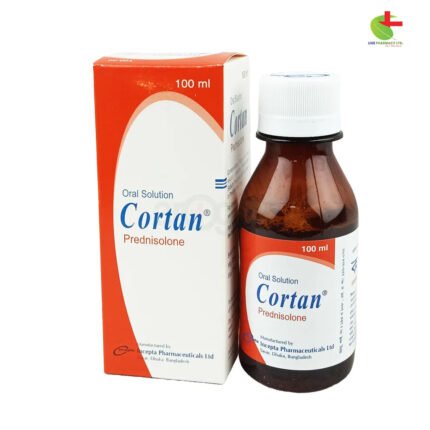Amlosartan 5/80
60.00৳ Strip
- Amlodipine and Valsartan is a fixed-dose medication for hypertension management.
- Amlodipine acts as a calcium channel blocker, while Valsartan inhibits Angiotensin II.
- Together, they lower blood pressure through complementary mechanisms.
- Ideal for patients not adequately controlled by either drug alone.
- Always consult a registered healthcare professional for personalized guidance.
 Brand
Brand
|
Incepta Pharmaceuticals Ltd |
|---|---|
 Generics
Generics
|
Amlodipine Besilate + Valsartan |
 Type
Type
|
Tablet |
Indications
The Amlodipine and Valsartan combination is indicated for the management of hypertension. This fixed-dose medication is not suitable for initial hypertension therapy.
Use this medication strictly as advised by a registered healthcare professional.
Pharmacology
Amlodipine functions as a dihydropyridine calcium channel blocker, effectively preventing the influx of calcium ions into vascular smooth and cardiac muscle. Valsartan acts by inhibiting the vasoconstrictive and aldosterone-secreting effects of Angiotensin II, specifically by blocking its binding to the AT1 receptor in various tissues, including vascular smooth muscle and the adrenal gland. This action operates independently of the pathways involved in Angiotensin II synthesis. The combination of Amlodipine and Valsartan is proven to effectively lower blood pressure through complementary mechanisms: Amlodipine reduces peripheral resistance by blocking calcium entry, while Valsartan decreases vasoconstriction caused by Angiotensin II.
Dosage & Administration
For hypertension treatment, Amlodipine is typically prescribed in once-daily doses of 2.5 mg to 10 mg, while Valsartan is effective at doses ranging from 80 mg to 320 mg. Clinical studies have demonstrated that the antihypertensive effects of this combination improve with increased doses of Amlodipine (5 mg to 10 mg) and Valsartan (160 mg to 320 mg). Most of the blood pressure-lowering effects are realized within two weeks of initiating treatment or adjusting the dosage. Dosage may be increased after 1 to 2 weeks, up to a maximum of 10/320 mg once daily, as needed to control blood pressure. This combination can be taken with or without food and may be used alongside other antihypertensive agents. Patients whose hypertension is not adequately managed with Amlodipine or Valsartan alone may benefit from this combination therapy.
Elderly Patients: Due to reduced clearance of Amlodipine in older adults, therapy should typically begin at 2.5 mg.
Renal Impairment: No initial dosage adjustment is necessary for patients with mild to moderate renal impairment. Gradual titration is recommended for those with severe renal issues.
Hepatic Impairment: No initial dosage adjustment is required for patients with mild to moderate liver impairment. Gradual titration is advised for those with hepatic conditions.
Use this medication strictly as advised by a registered healthcare professional.
Interactions
While specific drug interaction studies for the Amlodipine and Valsartan combination have not been conducted, individual studies on each component are available.
Contraindications
This combination is contraindicated in individuals with hypersensitivity to any of its components.
Side Effects
Side effects are typically mild and temporary. Common adverse effects may include peripheral edema, nasal congestion, sore throat, difficulty swallowing, upper respiratory infections, and dizziness.
Pregnancy & Lactation
Classified as Pregnancy Category D, it is unknown if Amlodipine or Valsartan is excreted in human milk. Due to the potential risks to a nursing infant, decisions regarding the continuation of breastfeeding or the use of this medication should be made carefully, weighing the benefits to the mother.
Precautions & Warnings
Avoid fetal or neonatal exposure. Monitor for hypotension and inform patients with severe obstructive coronary artery disease about the risks of myocardial infarction or increased angina. Titrate doses slowly for patients with impaired hepatic or severe renal function.
Use in Special Populations
The safety and efficacy of this medication have not been established in pediatric patients.
Therapeutic Class
Combined antihypertensive agents
Storage Conditions
Store below 30°C, away from light and moisture. Keep out of reach of children.













Reviews
There are no reviews yet.